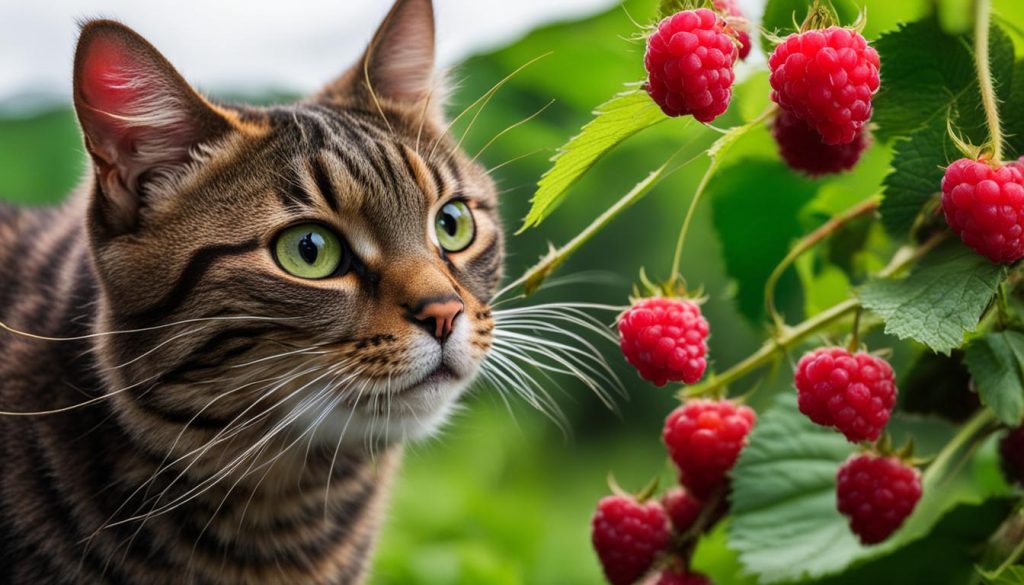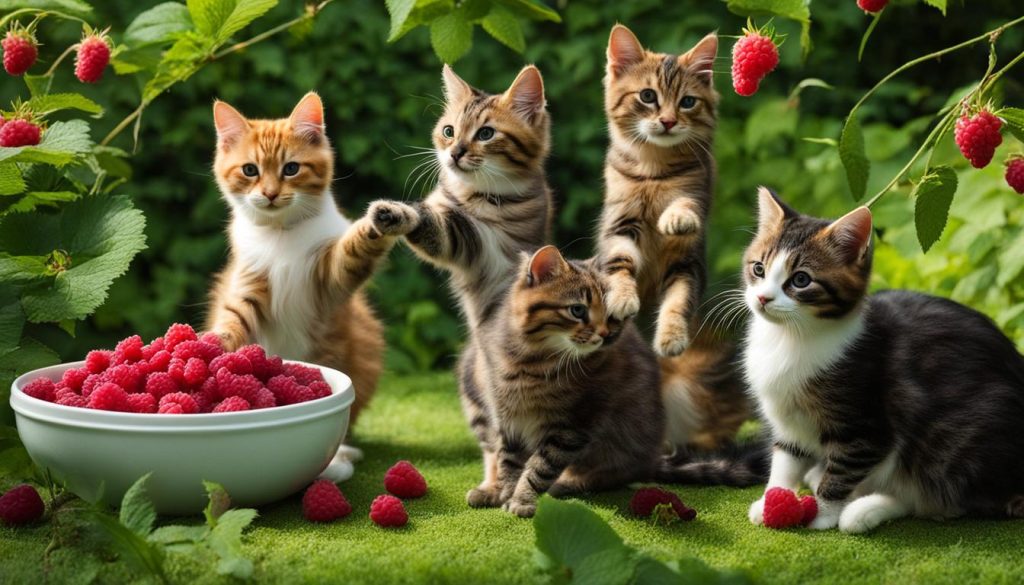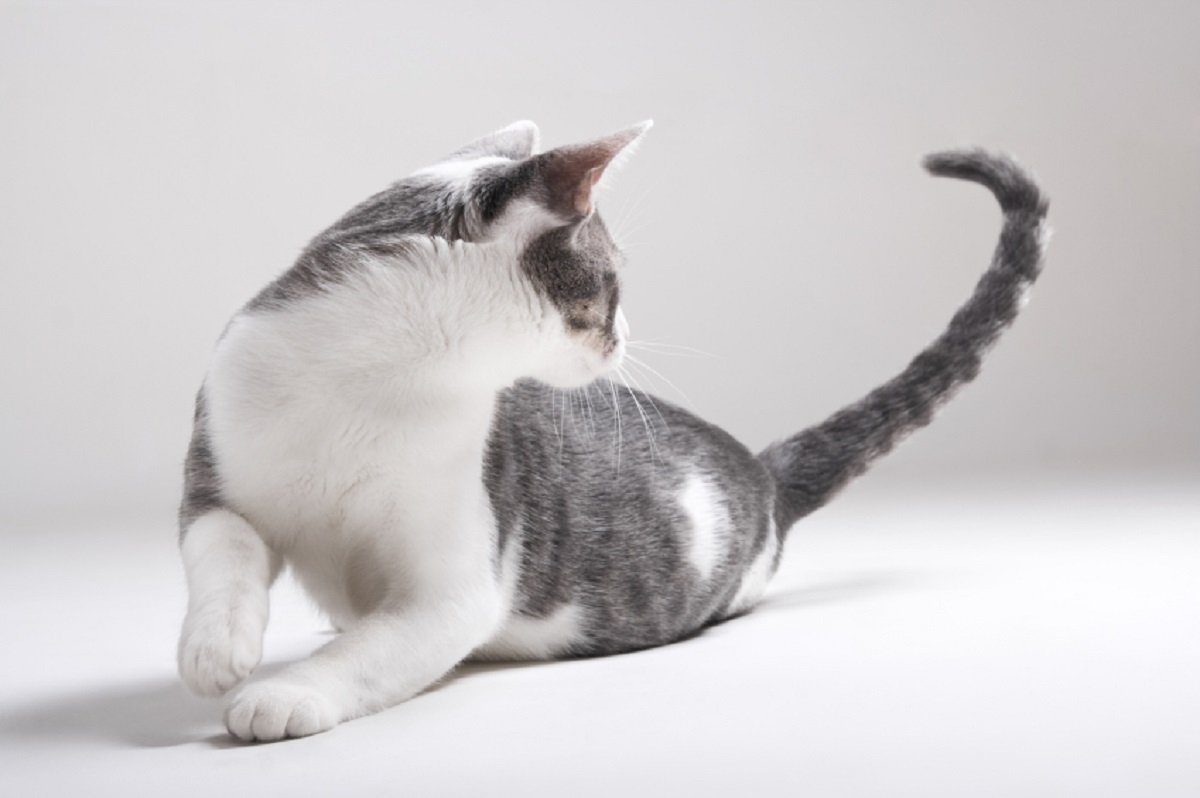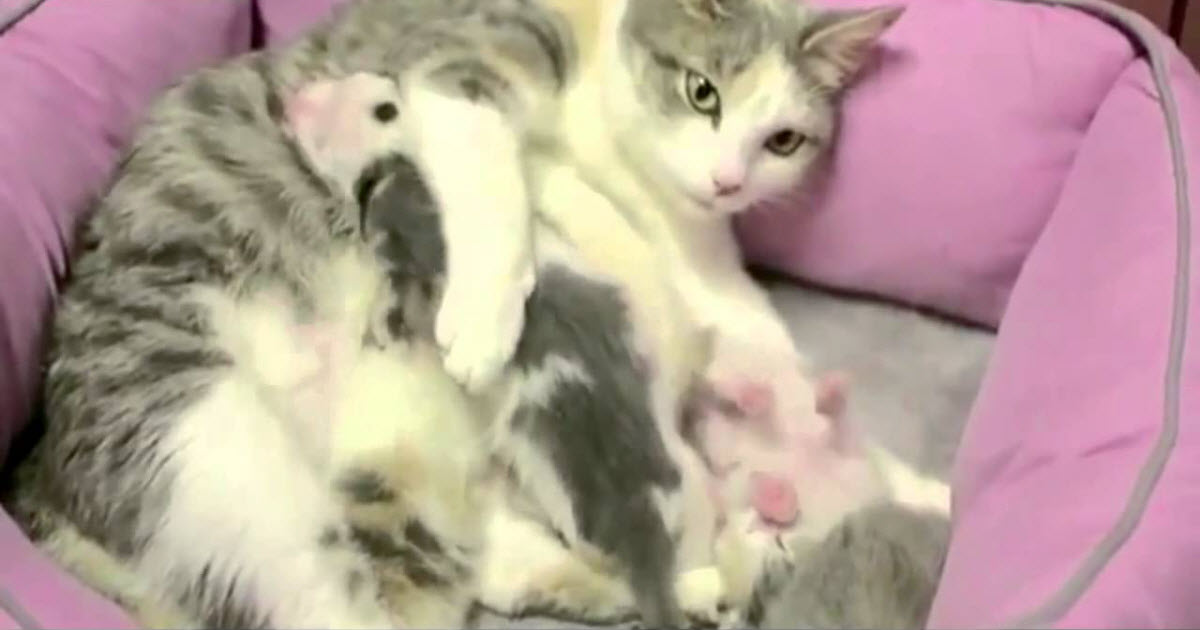Raspberries are a delicious and nutritious fruit that many of us enjoy. But what about our feline friends? Can cats eat raspberries? In this article, I will explore the safety of feeding cats raspberries, the potential benefits, and the precautions to take when offering this tasty treat to your cat.
Can Cats Eat Raspberries? Yes, they absolutely can.
- Cats can eat raspberries in moderation.
- Raspberries are non-toxic to cats.
- Raspberries contain dietary fiber, vitamins, and minerals that can benefit cats.
- Risks include the natural sugars in raspberries and potential pesticide exposure.
- It’s important to introduce raspberries gradually and monitor for any adverse reactions.
- Raspberry-flavored products like yogurt may not be safe for cats.
Can Cats Eat Raspberries?
Yes, cats can eat raspberries. Raspberries are non-toxic to cats, so they won’t harm your furry friend if consumed in small quantities. However, it’s important to remember that cats have different dietary needs than humans, so raspberries should be considered as an occasional treat rather than a regular part of their diet.
While cats can enjoy the occasional raspberry snack, it’s essential to provide a balanced and complete cat food diet to meet their nutritional requirements. Raspberries should not replace the main components of a cat’s diet, such as high-quality cat food and fresh water.
Feeding raspberries to cats should be done cautiously and in moderation, considering the following:
Dietary Differences: Cats are obligate carnivores, which means their primary diet should consist of meat. While raspberries can offer some nutritional benefits, they shouldn’t be a significant part of their diet.
Portion Control: Cats have small digestive systems, so it’s important to offer raspberries in small quantities. Limit the serving to one or two whole raspberries per occasion.
Monitoring: After introducing raspberries to your cat’s diet, observe their reaction. Some cats may be sensitive or allergic to certain foods, including raspberries. If you notice any adverse reactions like gastrointestinal upset or changes in behavior, discontinue feeding raspberries.
Veterinary Consultation: As with any dietary changes, it’s always a good idea to consult with your veterinarian before feeding your cat raspberries or any new food. They can provide specific guidance based on your cat’s individual needs and health conditions.
Benefits of Raspberries for Cats
Raspberries offer some nutritional benefits for cats, although they may not be the most essential part of their diet. Raspberries are a good source of dietary fiber, which can help support healthy digestion in cats. They also contain antioxidants, vitamins (such as vitamins A, C, E, and K), and minerals like calcium and potassium, which can contribute to overall health.

Risks of Feeding Cats Raspberries
While raspberries are generally safe for cats, it’s important to be aware of the risks associated with feeding them raspberries. Although cats can have raspberries, there are a few factors to consider to ensure their safety and well-being.
Natural Sugars: Raspberries contain natural sugars, which can be harmful to cats if consumed in large amounts. While a small amount is generally safe, it’s important to avoid overfeeding them and always offer raspberries as an occasional treat.
Pesticides and Herbicides: It’s essential to be mindful of the quality of raspberries you feed your cat. Non-organic raspberries may contain traces of pesticides and herbicides, which can be toxic to cats. To minimize the risks, opt for organic raspberries when available.
Sensitivities and Allergies: Just like humans, cats can have sensitivities or allergies to certain foods, including raspberries. It’s essential to introduce raspberries to your cat’s diet slowly and monitor their reaction. If you notice any signs of discomfort or adverse reactions, discontinue feeding them raspberries and consult your veterinarian.
When deciding to include raspberries in your cat’s diet, it’s crucial to prioritize their safety. Begin by offering small quantities and pay close attention to any negative reactions. Remember, moderation is key when it comes to feeding cats raspberries.
Guidelines for Feeding Cats Raspberries
If you decide to feed your cat raspberries, there are some guidelines to follow. First, make sure to wash the raspberries thoroughly to remove any potential chemicals or pesticides. Start by offering a small amount of raspberry to your cat and monitor their reaction. If they tolerate it well, you can gradually increase the amount, but always in moderation. Only offer one or two whole raspberries per serving and limit the frequency of raspberry consumption to once a week to avoid disrupting your cat’s nutrition.

Can Cats Eat Raspberry Yogurt?
While cats can enjoy the occasional raspberry as a treat, you should exercise caution when it comes to raspberry-flavored products like yogurt. Cats are lactose intolerant and typically should not consume dairy products. Although plain yogurt in small amounts may be safe for some cats, raspberry-flavored yogurt often contains additional ingredients, such as sugar or artificial sweeteners, that can be harmful to feline friends.
If you’re considering offering raspberry yogurt to your cat, it’s always best to consult with your veterinarian beforehand. They can provide tailored advice based on your cat’s specific dietary needs and ensure their overall health and well-being.
Conclusion
It is safe for cats to eat raspberries, but it should be done in moderation and as an occasional treat. Raspberries can offer some nutritional benefits for cats, but they should not be a substitute for a balanced and complete cat food diet. Feeding your cat raspberries in small quantities can provide them with dietary fiber, antioxidants, vitamins, and minerals that contribute to their overall health.
However, it’s important to follow the guidelines when feeding raspberries to cats. Make sure to wash the raspberries thoroughly to remove any potential chemicals or pesticides. Introduce raspberries gradually into your cat’s diet, starting with small amounts, and monitor their reaction. Avoid feeding your cat large quantities of raspberries as they contain natural sugars that can be harmful, and organic raspberries are preferred to minimize the risk of ingesting toxins from pesticides or herbicides.
If you notice any adverse reactions, such as gastrointestinal upset or allergic symptoms, it’s important to stop feeding raspberries to your cat and consult with your veterinarian. They can provide guidance specific to your cat’s health and nutritional needs. Remember, the well-being of your cat should always be a priority.
FAQ
Can cats eat raspberries?
Yes, cats can safely eat raspberries in moderation.
Are raspberries safe for cats?
Raspberries are non-toxic to cats and won’t harm them when consumed in small quantities.
What are the benefits of raspberries for cats?
Raspberries can provide some nutritional benefits for cats, including dietary fiber, antioxidants, vitamins, and minerals.
What are the risks of feeding cats raspberries?
Risks of feeding cats raspberries include potential harm from the natural sugars in raspberries, traces of pesticides and herbicides unless organic, and the possibility of allergies or sensitivities.
How should I feed raspberries to my cat?
To feed raspberries to your cat, wash them thoroughly, start with a small amount, and monitor your cat’s reaction. Offer one or two whole raspberries per serving and limit the frequency to once a week.
Can cats eat raspberry yogurt?
While cats can eat raspberries, it’s important to be cautious with raspberry-flavored yogurt as it may contain additional ingredients, such as sugar or artificial sweeteners, that can be harmful to cats.






